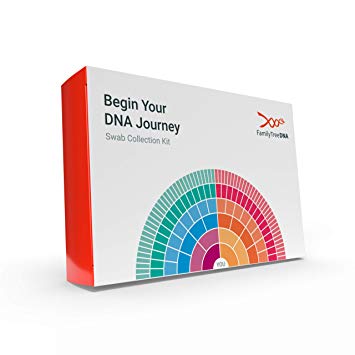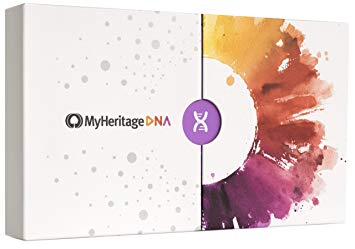Can law enforcement access AncestryDNA, Family Tree DNA, Living DNA and MyHeritage DNA test results? Here’s where each DNA testing company stands on law enforcement matching for forensic samples.
Editor’s note: This post has been updated intermittently, most recently in 2024. Check with each company’s terms of service for current policies.
 As use of genetic genealogy techniques by law enforcement investigators becomes increasingly common, DNA testing companies have created clear policies for how they feel about the use of their databases in these investigations. In short: Ancestry and 23andMe will fight tooth and nail to keep criminal investigators out of their DNA database. MyHeritage also appears to be in this camp. At FamilyTreeDNA, you’ll need to opt in to having your DNA samples (autosomal, mtDNA and YDNA) compared against samples uploaded by criminal investigators, and the company has started its own Investigative Genetic Genealogy unit.
As use of genetic genealogy techniques by law enforcement investigators becomes increasingly common, DNA testing companies have created clear policies for how they feel about the use of their databases in these investigations. In short: Ancestry and 23andMe will fight tooth and nail to keep criminal investigators out of their DNA database. MyHeritage also appears to be in this camp. At FamilyTreeDNA, you’ll need to opt in to having your DNA samples (autosomal, mtDNA and YDNA) compared against samples uploaded by criminal investigators, and the company has started its own Investigative Genetic Genealogy unit.
Let’s be clear: everyone wants to stop the bad guys. These companies who have openly denied access to law enforcement are doing it because they feel it is in the best interest of their customers, who paid for a genealogy service, not because they don’t want to help.
Here are more details you should know about each company and their interactions with law enforcement.
DNA testing and law enforcement policies
23andMe
 23andMe has this to say to its customers: “We work very hard to protect your information from unauthorized access from law enforcement. However, under certain circumstances, your information may be subject to disclosure pursuant to a judicial or other government subpoena, warrant or order, or in coordination with regulatory authorities. If such a situation arises, we have to comply with valid governmental requests and we will notify the affected individual(s) unless the legal request prevents us from doing so.”
23andMe has this to say to its customers: “We work very hard to protect your information from unauthorized access from law enforcement. However, under certain circumstances, your information may be subject to disclosure pursuant to a judicial or other government subpoena, warrant or order, or in coordination with regulatory authorities. If such a situation arises, we have to comply with valid governmental requests and we will notify the affected individual(s) unless the legal request prevents us from doing so.”
The webpage with the above statement links to their Transparency Report on law enforcement requests and to their Guide for Law Enforcement, which says the same thing to criminal investigators: “23andMe chooses to use all practical legal and administrative resources to resist requests from law enforcement, and we do not share customer data with any public databases, or with entities that may increase the risk of law enforcement access. In certain circumstances, however, 23andMe may be required by law to comply with a valid court order, subpoena, or search warrant for genetic or personal information.”
AncestryDNA
Ancestry shares its approach to privacy in this quick video:
 A privacy-centered FAQ covers more specifics, including Ancestry’s policy on law enforcement requests: “For all requests, Ancestry requires valid legal process in writing before producing any personal information about our users. We publish an annual transparency report describing requests we received. When we receive a request, our team reviews it for compliance with legal requirements and our policies. If we believe a request is overly broad, we will seek to narrow it. We notify users prior to turning over any information in order to give them an opportunity to challenge the request unless it would be counterproductive or we are legally prevented from doing so.” (The site’s Guide for Law Enforcement repeats essentially the same thing.)
A privacy-centered FAQ covers more specifics, including Ancestry’s policy on law enforcement requests: “For all requests, Ancestry requires valid legal process in writing before producing any personal information about our users. We publish an annual transparency report describing requests we received. When we receive a request, our team reviews it for compliance with legal requirements and our policies. If we believe a request is overly broad, we will seek to narrow it. We notify users prior to turning over any information in order to give them an opportunity to challenge the request unless it would be counterproductive or we are legally prevented from doing so.” (The site’s Guide for Law Enforcement repeats essentially the same thing.)
FamilyTreeDNA
 2021 update: FamilyTreeDNA acquired by Australian genomics company
2021 update: FamilyTreeDNA acquired by Australian genomics company
With a FamilyTreeDNA* test, you’re automatically opted out of Investigative Genetic Genealogy Matching (IGGM). In order to opt in to IGGM, you’ll have to also be opted in to matching.
As stated to customers, “your information may only be viewable by Law Enforcement Agencies through a Law Enforcement Account if:
- You have opted in to Matching;
- You have opted in to Investigative Genetic Genealogy Matching; and
- You and the Genetic Results uploaded to a Law Enforcement Account result in a Match.”
“…Law Enforcement Agencies may be granted access to information for Investigative Genetic Genealogy Matching either directly through us or via our third-party licensees. Your ‘opt in’ to Investigative Genetic Genealogy Matching extends to, and acts as consent to, access and searches to your information to or by our third-party licensees and disclosures of search results to or by such third-party licensees.”
Family Tree DNA’s Law Enforcement Guide lays out specific rules governing the submission of forensic samples to their database, and under what circumstances they will release individual user information to investigators. Have you opted in to IGGM and now want to opt out? Here’s how to opt out of law enforcement matching at Family Tree DNA.
If you opt out of Law Enforcement Matching, law enforcement registered accounts that are genetic relatives will not be able to see you as a match, but you will continue to see them as one.
MyHeritage DNA
 MyHeritage’s Terms and Conditions include the explicit statement that “using the DNA Services for law enforcement purposes, forensic examinations, criminal investigations, ‘cold case’ investigations, identification of unknown deceased people, location of relatives of deceased people using cadaver DNA, and/or all similar purposes, is strictly prohibited, unless a court order is obtained. It is our policy to resist law enforcement inquiries to protect the privacy of our customers.”
MyHeritage’s Terms and Conditions include the explicit statement that “using the DNA Services for law enforcement purposes, forensic examinations, criminal investigations, ‘cold case’ investigations, identification of unknown deceased people, location of relatives of deceased people using cadaver DNA, and/or all similar purposes, is strictly prohibited, unless a court order is obtained. It is our policy to resist law enforcement inquiries to protect the privacy of our customers.”
2023 update: On June 27, 2023, Leah Larkin reported on The DNA Geek that the “Riverside County Regional Cold Case Homicide Team uploaded the victim’s DNA profile to MyHeritage in violation of that company’s Terms.” It was clearly reported as a violation by whomever provided the DNA sample, NOT by MyHeritage.
GEDmatch
GEDmatch, that database that acts as a collector for DNA test results, was the first database to be used successfully by law enforcement. GEDmatch was purchased in December 2019 by a forensic company, which promised enhancements but no changes to the terms of service.
Currently the GEDmatch website states that these two types of DNA data are permitted to be uploaded: “DNA obtained and authorized by law enforcement to identify a perpetrator of a violent crime against another individual, where ‘violent crime’ is defined as murder, nonnegligent manslaughter, aggravated rape, robbery, or aggravated assault” and “DNA obtained and authorized by law enforcement to identify remains of a deceased individual.”
As of May 2019, everyone in the GEDmatch database was opted out of law enforcement involvement and you have to go back in and opt in if you want to be a part of it.
DNA Justice™
DNA Justice™ is a 501 (c)3 nonprofit DNA database that assists law enforcement agencies in identifying unidentified human remains and perpetrators of violent crimes. The organization is not a testing company, so you’ll have to take a DNA test at a testing company, download your results, register with DNA Justice™ and upload your results to their database. You can also optionally include additional information to assist investigators. If a case is solved using your uploaded DNA as a match, they’ll notify you.
DNA Justice™ says that “the creation of this database is solely for the public’s benefit and is not motivated by a desire to build an asset to benefit a for-profit company or for personal enrichment. DNA Justice will never seek to profit from law enforcement or the public.” There are 30 law enforcement profiles currently uploaded to the site.
Genetic genealogy and law enforcement
Again, everyone wants to solve crimes. As a genetic genealogy community, we need to be talking more about how our wonderful group of caring individuals (‘cause let’s be honest, we are a pretty fantastic group) can protect individual privacy and help make our communities safer.
Learn more about DNA testing options
 Our Autosomal DNA quick reference guide covers the ins and outs of the privacy options at each company, plus so much more. This inexpensive guide takes you through the process of testing at each of the autosomal DNA testing companies. Learn when to test; what the test could tell you; a detailed comparison of the different testing companies; how to understand and use your ethnicity results; and more. It’s a great next step in your genetic genealogy learning.
Our Autosomal DNA quick reference guide covers the ins and outs of the privacy options at each company, plus so much more. This inexpensive guide takes you through the process of testing at each of the autosomal DNA testing companies. Learn when to test; what the test could tell you; a detailed comparison of the different testing companies; how to understand and use your ethnicity results; and more. It’s a great next step in your genetic genealogy learning.

